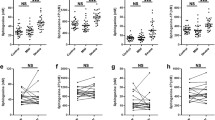Résumé
La présente étude met en évidence pour la première fois l’intérêt dans le psoriasis d’un complément alimentaire à base de phospholipides marins extraits de poissons pélagiques sauvages, riche en oméga-3. Trente patients incluant tous les types de psoriasis, avec des lésions évoluant en moyenne depuis une dizaine d’années et pour certains même entre vingt et trente ans ont pris 400 mg par jour de ces phospholipides durant quatre à six mois. Parallèlement, tous les autres traitements ont été stoppés. Les résultats sont évalués par le score PASI et par photographie. En moyenne, toutes les plaques régressent en deux à trois mois et cicatrisent en quatre à six mois. Diverses hypothèses sont évoquées pour expliquer cette action remarquable, notamment la carence en certains phospholipides dans le psoriasis ou l’emballement de leur consommation au niveau des plaques. L’apport de phospholipides compense leur dégradation par les phospholipases proinflammatoires. Ce travail d’observation est une étude préliminaire et sera étayée par une étude en double aveugle. Elle devrait déboucher sur l’indication formelle de ce type de complément dans le psoriasis pour des raisons à la fois humaines et économiques.
Abstract
The present study shows for the first time the interest in a food supplement containing marine phospholipids of wild pelagic fish extracts, rich in omega 3 for the treatment of psoriasis. Thirty patients with all types of psoriasis, with lesions having evolved for an average of ten years, sometimes between 20 and 30 years, took 400 mg per day of these phospholipids for a period of 4 to 6 months. In parallel all other treatments were stopped. The results are evaluated by the PASI score and photography. On average all the lesions regress in 2 to 3 months and heal in 4 to 6 months. Various hypotheses are evoked to explain this remarkable action, the phospholipid deficiency in the psoriasis or the acceleration of their consumption in the lesions. The phospholipid contribution compensates for their degradation by the pro-inflammatory phospholipases. This observation is a preliminary study and will be supported by a double blind study. It should lead to the formal indication of this type of complement in psoriasis for human and economic reasons.
Similar content being viewed by others
Bibliographie
Gornicki (2004) A Changes in erythrocyte microrheology in patients with psoriasis. Clin Exp Dermatol 29(1): 67–70
Horrobin DF (1983) The regulation of prostaglandin biosynthesis by manipulation of essential fatty acid metabolism. Rev Pure Appl Pharm Sci 4: 339–83
Summerly R, Ilderton E, Gray GM (1978) Possible defects in triacylglycerol and phosphatidylcholine metabolism in psoriatic epidermis. Br J Dermatol 99(3): 279–88
Thorne N (1963) The treatment of psoriasis with fractionated tar and lecithin. Preliminary report. Br J Dermatol 75: 422–7
Ziboh VA, Chapkin RS (1988) Metabolism and function of skin lipids. Prog Lipid Res 27: 81–105
Author information
Authors and Affiliations
Corresponding author
About this article
Cite this article
Dupont, P. Traitement du psoriasis par la lécithine marine. Phytothérapie 4, 15–22 (2006). https://doi.org/10.1007/s10298-006-0140-3
Published:
Issue Date:
DOI: https://doi.org/10.1007/s10298-006-0140-3




